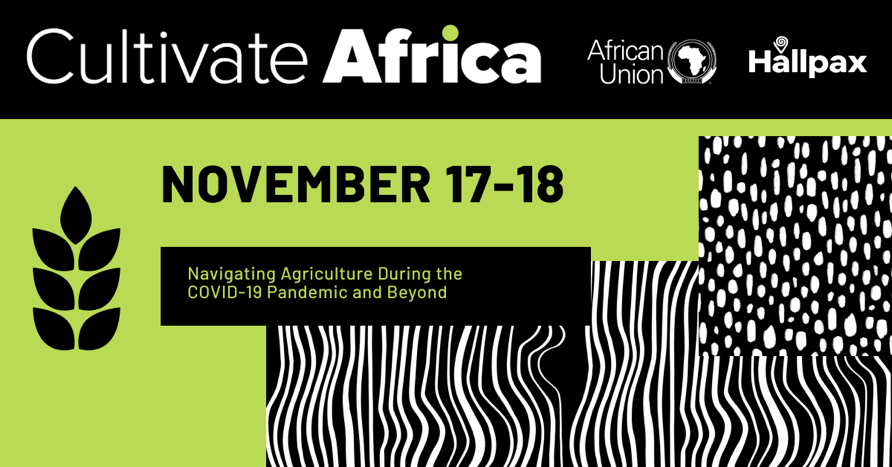There’s no doubt that COVID-19 has had significant effects on Africa’s food systems. The real question is how we can work together to mitigate threats that the pandemic poses for food security and nutrition, while building resilience to future shocks.
Researchers from the GCRF-Agricultural and Food System Resilience: Increasing Capacity and Advising Policy (AFRICAP) programme added their voices to the conversation during the Cultivate Africa Conference. Hosted virtually from 17 – 18 November 2020, Cultivate Africa was organized by the African Union Commission to address and avert the negative impacts of COVID-19 on African food systems.
AFRICAP research was shared through two side sessions, the first on building resilient food and agriculture systems, and the second on informing climate-resilient policy.

Session 1: Building resilient food and agriculture systems
Hosted on 17 November, this side session showcased how AFRICAP researchers are drawing together existing knowledge of the opportunities and challenges for climate-smart agriculture, and the broader policy and institutional environments at play, to provide a basis for envisioning and evaluating Africa’s potential agri-food futures.
The event featured short presentations from University of Leeds researchers including Dr Stephen Whitfield, Dr Samuel Eze, Dr Harriet Smith, Dr Stewart Jennings, and Ndashe Kapulu, and was facilitated by Sithembile Mwamakamba of the Food, Agriculture and Natural Resources Policy Analysis Network (FANRPAN).
Key messages from the session
- To support inclusivity, interventions must meaningfully engage with existing social dynamics. Unbalanced power relations risk reinforcing prevailing power hierarchies, and not addressing social dynamics can further exclude vulnerable groups.
- Interdisciplinarity and knowledge-sharing among stakeholders will help in building resilient agricultural systems through implementation of appropriate Climate Smart Agriculture practices
- Resilience cannot be built by looking at isolated disciplinary perspectives. A holistic view of economic, socio-economic, cultural, environmental, policy and institutional perspectives, with integrated and concerted action, is required.
- We need indicators to be able to measure and evaluate the impact of interventions on enhancing resilience of food systems.
Session 2: Informing climate-resilient policy
The second side session focused on AFRICAP’s integrated assessment framework, known as iFEED – the integrated Future Estimator for Emissions and Diets. Held on 18 November, the event began with a keynote address from Prof Andy Challinor and Dr Stewart Jennings, AFRICAP researchers who lead AFRICAP’s work on developing climate-smart pathways. Speakers from countries participating in the development of iFEED also shared their experiences, adding context and exploring how they’re engaging with the iFEED team with the overarching goal of ensuring food security.
Highlights from the session
- The impacts of climate change and shocks such as COVID-19 emerge from the interactions of biophysical and socioeconomic systems.
- The current warming will reduce yields unless maize breeding and seed systems adapt immediately.
- The evolution of new crop variety and crop breeding mechanisms that have been put in place are not keeping pace with climate change as it also takes a long time to get new seed varieties from pre-breeding to approval and to the ground.
Expert knowledge is key to each stage of iFEED, and in particular, interactions with stakeholders. Participatory scenario workshops inform the future scenarios which iFEED examines, and stakeholders give crucial insight into how to model these futures and present results in each AFRICAP country. AFRICAP results will be viewable online with clear summaries of all the results per country, and per possible future scenario by late 2021.
About Cultivate Africa
Cultivate Africa was organized by the African Union Commission to unlock a concerted multi-stakeholder partnership toward a sustained and effective response leading to averting potential adverse effects of the COVID-19 pandemic on food security, nutrition and food systems (production, distribution, trading and market access of agricultural commodities and services).
